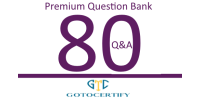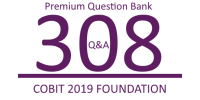Exam Glossary
| Term | Main definition |
|---|---|
| service relationship | A cooperation between a service provider and service consumer. Service relationships include service provision, service consumption, and service relationship management. |
| service relationship management | Joint activities performed by a service provider and a service consumer to ensure continual value co-creation based on agreed and available service offerings. |
| service request | A request from a user or a user’s authorized representative that initiates a service action which has been agreed as a normal part of service delivery. |
| service request management practice | The practice of supporting the agreed quality of a service by handling all pre-defined, user-initiated service requests in an effective and userfriendly manner. |
| service validation and testing practice | The practice of ensuring that new or changed products and services meet defined requirements. |
| service value chain | An operating model for service providers that covers all the key activities required to effectively manage products and services. |
| service value chain activity | A step of the value chain that an organization takes in the creation of value. |
| service value system SVS | A model representing how all the components and activities of an organization work together to facilitate value creation. |
| service-dominant logic | A mental model of an (economic) exchange in which organizations co-create value by applying their competencies and other resources for the benefit of each other. |
| shif-left approach | An approach to managing work that focuses on moving activities closer to the source of the work, in order to avoid potentially expensive delays or escalations. In a software development context, a shift-left approach might be characterized by moving testing activities closer to (or integrated with) development activities. In a support context, a shift-left approach might be characterized by providing self-help tools to end-users. |
| simian army | An open-source toolset for chaos engineering developed by Netflix®. |
| single-loop learning | The type of learning that takes place when fixing problems within the present organizational structure so that the system will function better without altering its structure. |
| site reliability engineering SRE | A discipline that incorporates aspects of software engineering and applies them to infrastructure and operations problems with the goal of creating ultra-scalable and highly reliable software systems. |
| software development and management practice | The practice of ensuring that applications meet stakeholder needs in terms of functionality, reliability, maintainability, compliance, and auditability. |
| sourcing | The activity of planning and obtaining resources from a particular source type, which could be internal or external, centralized or distributed, and open or proprietary. |






